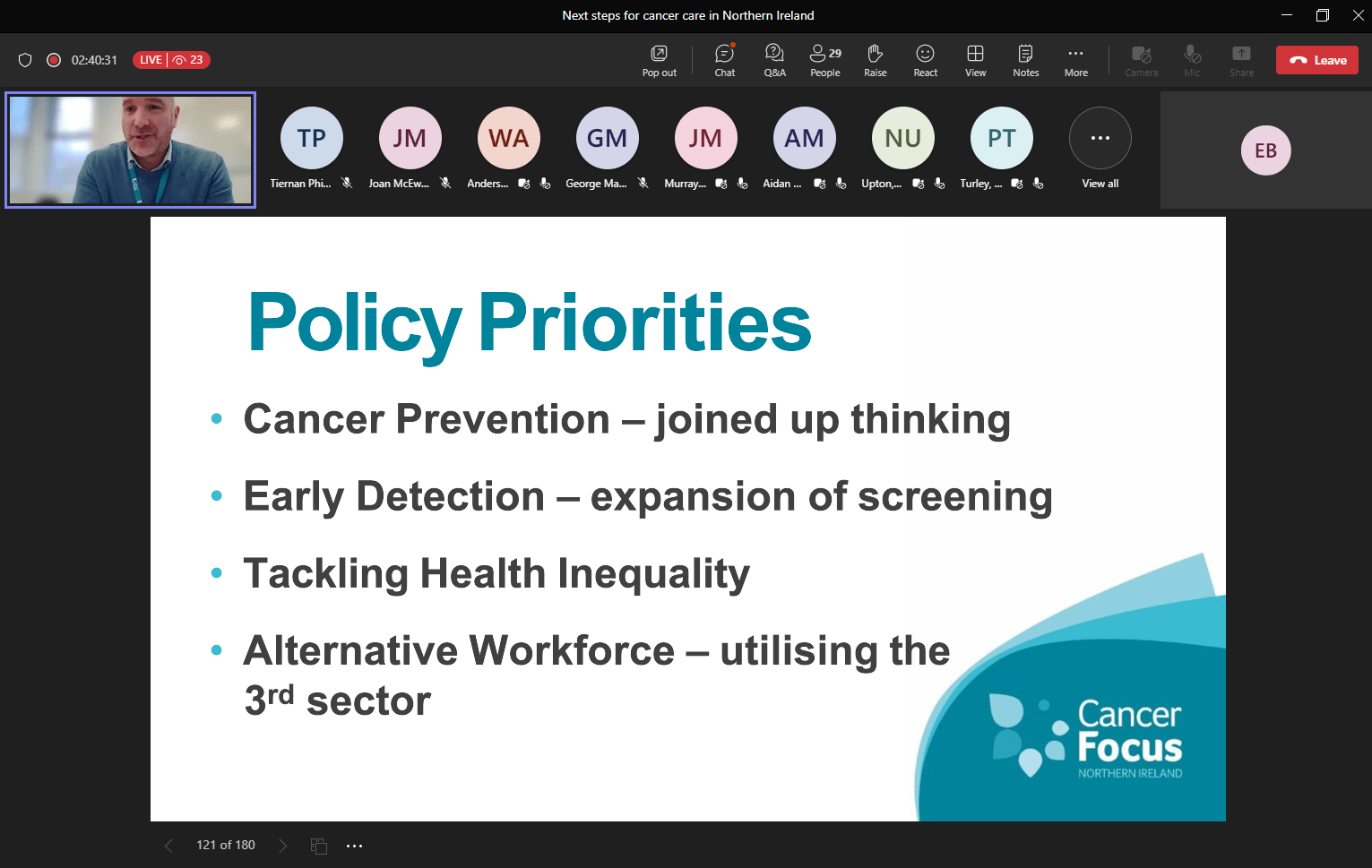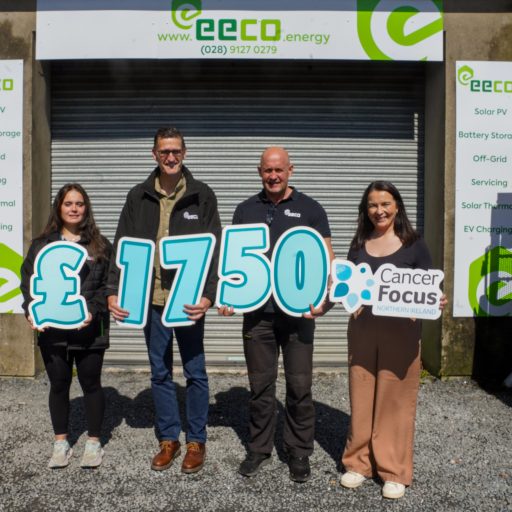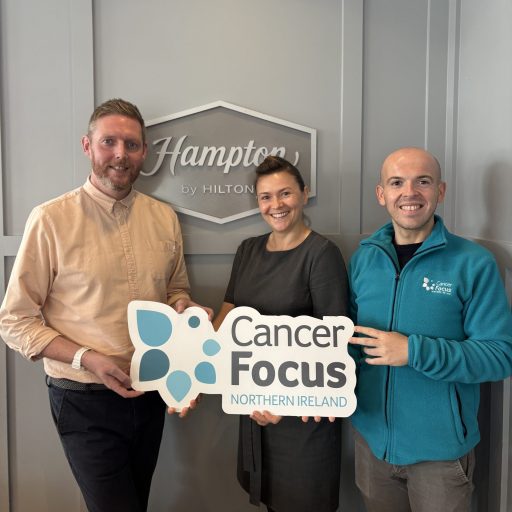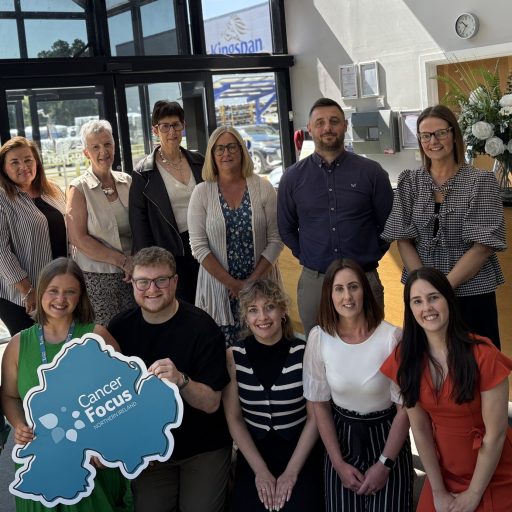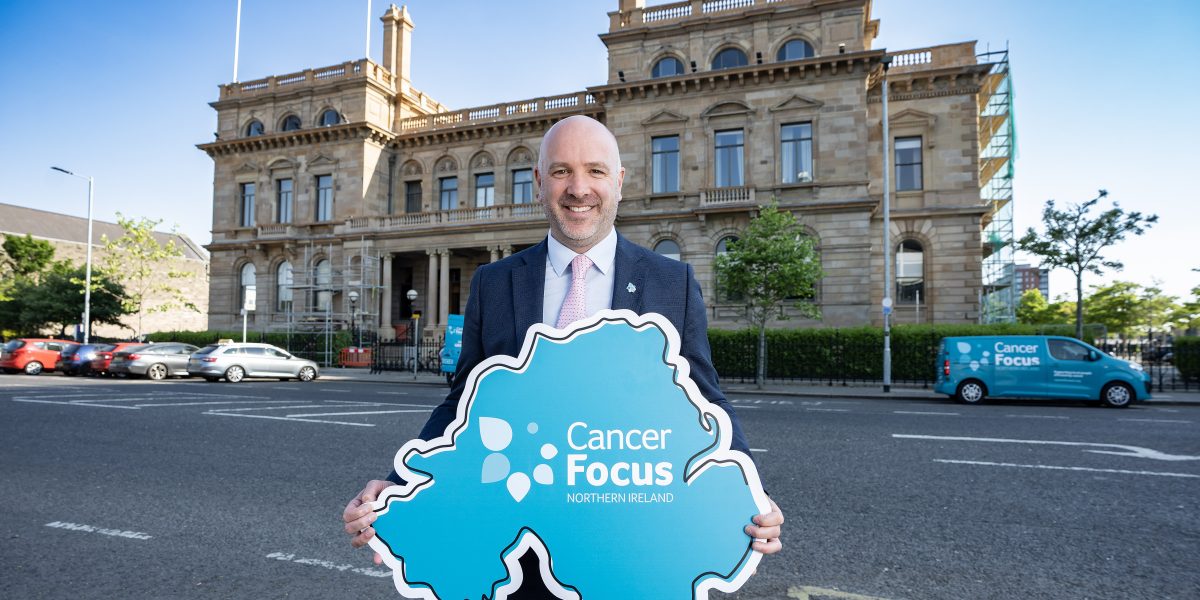
Cancer Focus NI Chief Executive Richard Spratt addresses the Policy Forum for Northern Ireland
Richard Spratt, Chief Executive of Cancer Focus Northern Ireland, was invited to speak at the Policy Forum for Northern Ireland on the topic of “Next Steps for Cancer Care in NI.” Richard was part of a panel discussion on the “Long-term goals for improving cancer outcomes.”
Here are the opening remarks Richard prepared for this morning:
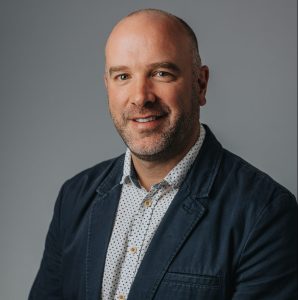
Richard Spratt, Chief Executive at Cancer Focus Northern Ireland
Hello, my name is Richard Spratt, and I am the Chief Executive at Cancer Focus Northern Ireland. I also sit on the Steering Board of the NI Cancer Registry and represent the third sector at the Cancer Programme Board, which oversees the implementation of the current NI Cancer Strategy. I am also taking up post as the interim Chair of the Northern Ireland Cancer Coalition, a new body which will be officially launching in couple of months’ time.
Cancer Focus Northern Ireland is a local cancer charity in Northern Ireland. We are here and we exist to support local people on their cancer journey. Our work is holistic working right across the cancer spectrum from providing emotional / psychological support & care services to investing in research funding, engaging in cancer prevention initiatives, and seeking to influence and support cancer policy.
We have advocated for long-term goals and planning for improving cancer outcomes for many years now and were very much engaged in the development of the Cancer Strategy. A lot of the thinking and objectives have been worked through and identified via the 60 recommendations which form the 10-Year Cancer Strategy, launched in March 2022 to go through 2032. The Strategy captures all the key elements of policy and intervention required across the cancer landscape, including prevention, early detection, diagnosis, treatment, and holistic patient support and experience. This document does a great job identifying many of the key improvement opportunities in the NI cancer space. Unfortunately, it is largely unfunded and on the shelf with limited progress in first 2 years. The DoH’s own funding plan projected a funding need of £778M (revenue) and capital needs of £73M over the lifetime of the strategy. The Strategy to date has not been given the financing or attention it needs to start implementing its potentially life-saving ideas and initiatives, indeed without that commitment it will remain what it currently is, a document with some ambition and aspiration but no ability to actually bring about change.
We all agree, there is a lot to be done. We share common concerns and are worried about cancer waiting times, workforce, and patient support and experience. We are also particularly concerned about a lack of intention and investment into cancer prevention. The Cancer Strategy itself states that 30-40% of cancer incidence in NI is attributable to modifiable lifestyle and environmental factors. We need joined up policy and cross cutting departmental approaches to support people to live healthier lives which will reduce cancer risk but also other major health conditions. Risk factors such as tobacco & alcohol consumption, obesity (note that DoH have launched some consultation for a strategy in this regard), lack of physical activity and exposure to harmful UV radiation.
Our view at Cancer Focus NI in terms of prioritisation is that we need a fully funded cancer strategy to enable longer term, strategic planning not just a continuation of the status quo which is perpetual hamster wheel of dealing with short term ‘fire fighting’.
Lets actually implement the ambition that is there in the Cancer Strategy:
Cancer Prevention
- Relocate and commit funding proportionally and intentionally much earlier in the cancer pipeline. We will not be able to treat our way out of this crisis whereby cancer incidence is projected to double by 2040. Why should we not tackle this much more intentionally now, it must make sense from a health economics perspective.
Early Diagnosis & Treatment
- Catching and treating cancers earlier, to improve patient outcomes and lower treatment costs. This is about introducing and expanding screening programmes.
Patient Experience
- Reviewing patient signposting to better support patients and prevent pathway backlogs. Utilising the third sector particularly to compliment the diagnostic and treatment pathways – opportunity for more cohesive and co-ordinated signposting to care and support services.
Tackling Health Inequalities
- Addressing health inequalities, because in Northern Ireland’s most socio-economically deprived areas evidentially there are poorer health outcomes for people. Related to Access to services – The same can be said for people in more rural communities – serviced can be hard to reach. On the care and support pathways we at Cancer Focus NI have made it a strategic priority to open 5 cancer support centres throughout NI over next number of years. The first of these is going to be in Enniskillen where we scoped and established there was significant under provision of emotional / psychological, practical information and advisory support for those on cancer journey.
Role of the 3rd Sector
- The Cancer Strategy also recognises the role of the third sector. Cancer charities do heavy lifting around emotional & psychosocial support infrastructure in NI, preliminary medical checks / screening, information and advice, grants, fund research, hospital staff, community facilities, and much more. We also work with the Department of Health and the HSC system to provide commissioned services on their behalf, such as stop smoking initiatives, public health campaigns, and crucial mental health support. Our Health and Social Care system is great at treating cancers, but as mentioned, the cancer landscape goes beyond diagnosis and treatment. Cancer charities fill many of the gaps when it comes to cancer prevention, care access, treatment research, and patient information and support.
It has been unacceptable that we have not had proper governance in NI, the stop start nature of our politics here I don’t think anyone would argue has helped the development and transformation of public services, particularly health. We now need the implementation of transformation that has been discussed across various panels, papers and strategies. The people in NI deserve nothing less.
Especially now we have a Health Minister in post, who understands the brief, we are hopeful that we will be able to start to galvanise needed action.
Each day, another 37 people are told “you have cancer.” It could be anyone, at any time, anywhere in NI. This issue affects us all; we need to be able to trust that if we ever get that devastating news, we have a system that will get us the support we need. We are glad this forum is surfacing some important issues and ideas to that end, and thank you for inviting us to be a part of it.
